Blogs on the The European Union’s fundamental values: Democracy, Human Rights and Rule of Law

Description: blogs on European Union are written by chair holder, other invited professors, experts, students related to the constitutional law of European Union, Human Rights, Rule of Law, and other topics on Georgian European integration process. Blogs are published periodically, at least once during two month.


ევროპის დღე
2024 წლის 9 მაისი, ბათუმი, საქართველო
ევროკავშირის მხარდაჭერა განსაკუთ-რებულია საქართველოში განათლე-ბისა და მეცნიერების განვითარებაში. მათ შორის გამორჩეულია ერაზმუს + თავისი გაცვლითი პროგრამებით და ჟან მონეს პროგრამა ევროკავშირის სწავლებისა და კვლევის მხარდაჭერის უნიკალური შესაძლებლობით. ბათუმის შოთა რუსთაველის სახელ-მწიფო უნივერსიტეტი ერთ-ერთი მოწინავეა საქართვე-ლოში ევროპულ უნივერსი-ტეტებთან მოქმედი გაცვლითი პროგრამებით. ვრცლად
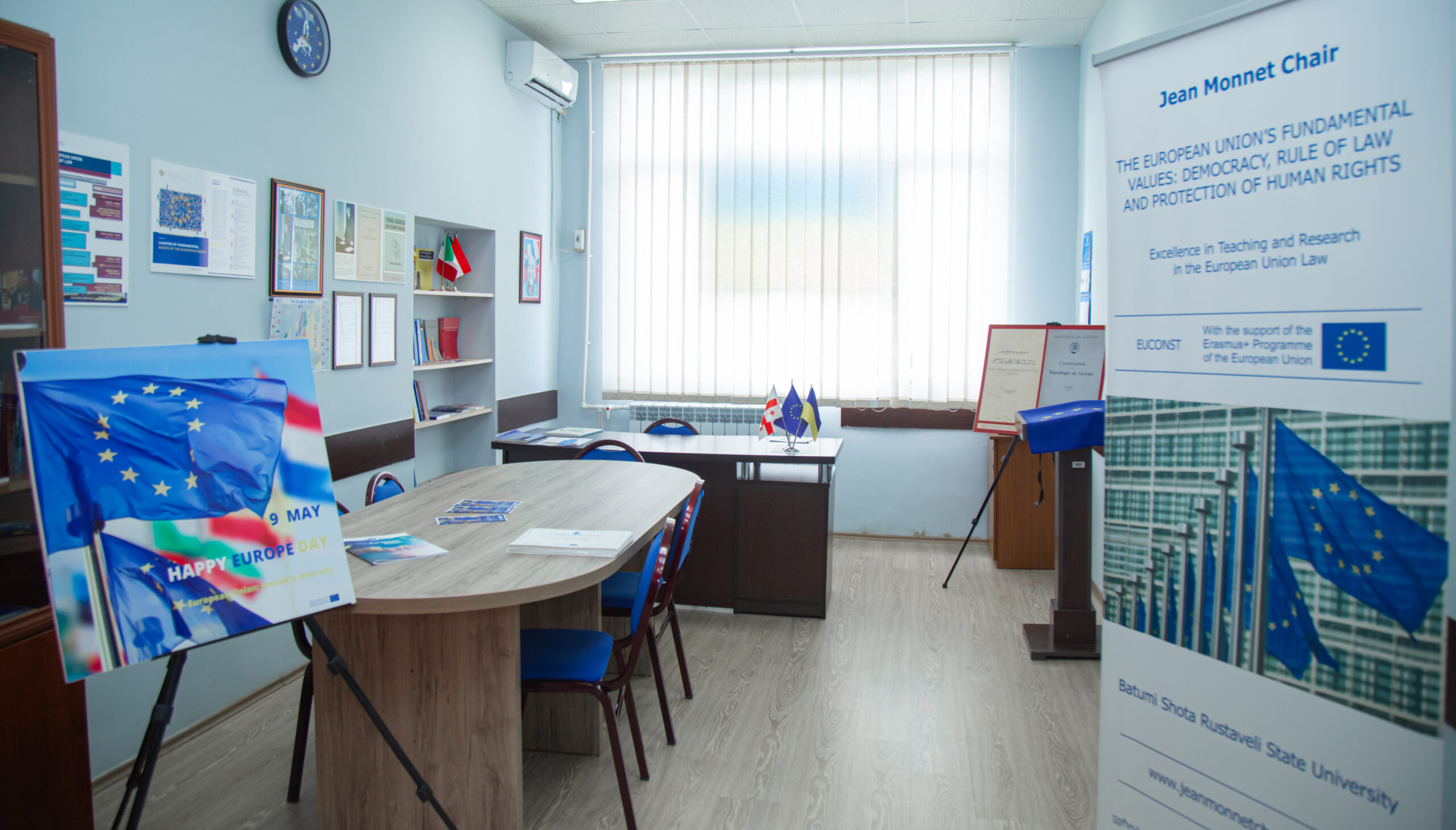


Results and Perspectives of European Legal Studies at Batumi State University
Malkhaz Nakashidze – September 22, 2023
The Jean Monnet Program is one of the important initiatives that the European Union implements within the framework of the “Erasmus+” program worldwide, in order to promote the values of the European Union, to promote the development of research and teaching about the European Union. As you know, Georgia has been involved in the “Erasmus +” program for years and various universities have been implementing Jean Monnet programs. Full Blog
ბავშვის უფლებების დაცვის სამართლებრივი საფუძვლები საქართველოში
მაგდა ჯაფარიძე – 6 სექტემბერი, 2023
საქართველოს კონსტიტუციის მიხედვით, საქართველო არის სამართლებირივი სახელმწიფო. საქართველოს კონსტიტუციით დაცულია ადამიანის საყოველთაოდ აღიარებული უფლებები და თავისუფლებები. კონსტიტუციის მეორე თავი ეთმობა ადამიანის ძირითად უფლებებს და 30-ე მუხლის მეორე პუნქტის მიხედვით დედათა და ბავშვთა უფლებები დაცულია კანონით.[1] ბლოგი სრულად
A Protest Against the Russian Cruise Ship in Batumi and Protection of the European Values
Malkhaz Nakashidze – July 31, 2023
When the Russian Federation has occupied 20% of the territory of Georgia, the occupation of the occupied territories continues every day, the occupiers kidnap and kill Georgian citizens, the Georgian authorities consider the decisions of the Russian authorities or any activity of Russian citizens in Georgia as a normal fact of life. This kind of stupidity causes a completely justified indignation among the citizens of Georgia. Full Blog
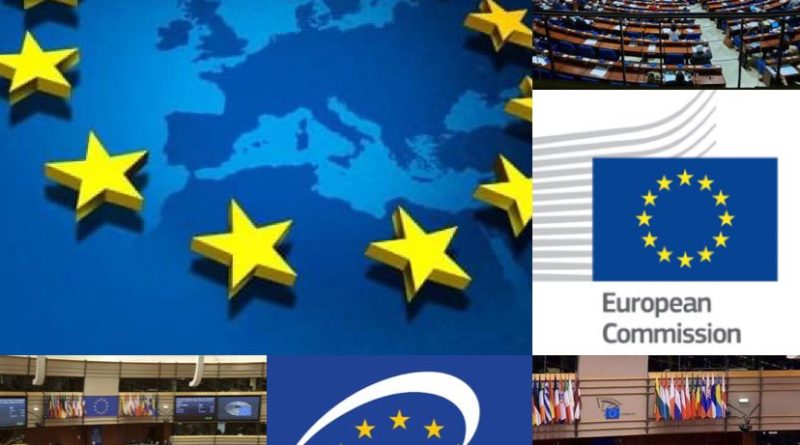

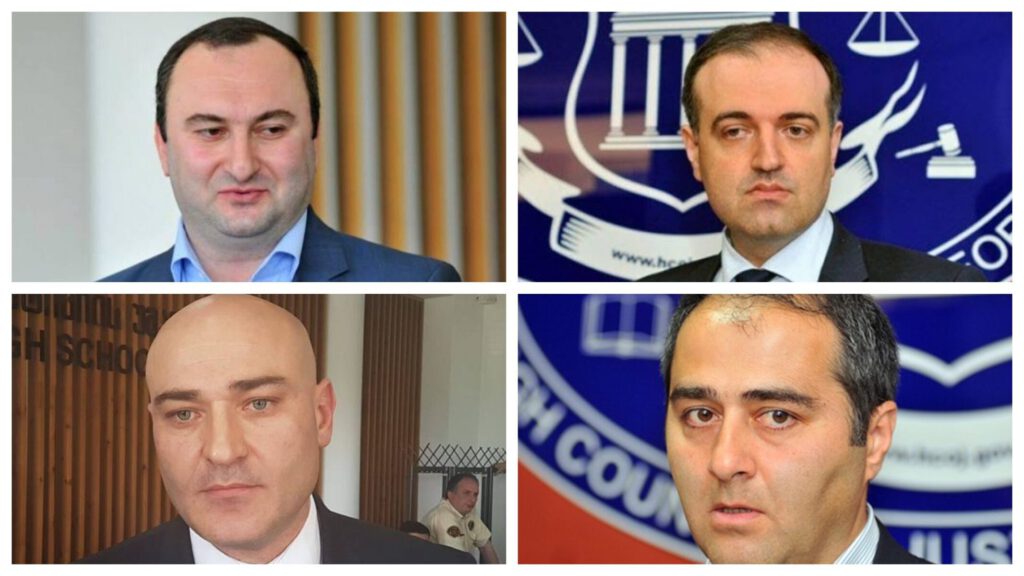
European Commission Report on Georgia’s Application for Membership of the European Union
Malkhaz Nakashidze – June 30, 2023
On 3 March 2022, Georgia presented its application for membership of the European Union. On 7 March 2022, the Council of the European Union requested the Commission to submit its opinion on this application. EU Heads of State and Government endorsed this decision at the informal leaders meeting in Versailles. Full Blog
Visa-free Regime with Russia, Resumption of Flights and European Untegration Aspirations
Malkhaz Nakashidze – May 31, 2023
According to the decree issued by the President of Russia, Vladimir Putin, the visa regime with Georgia will be canceled from May 15, 2023. Citizens of Georgia will be able to enter Russia without a visa for up to 90 days. By Putin’s decree, the ban on flights to Georgia was also lifted from May 15. Direct flights between Russia and Georgia were stopped in 2019. Full Blog
Georgian Judges Sanctioned by US State Department
Malkhaz Nakashidze – April 28, 2023
On April 5, 2003, the US State Department imposed sanctions on 4 Georgian judges – Mikheil Chinchaladze, Levan Murusidze, Irakli Shengelia and Valerian Tsertsvadze. This decision was made by US authorities to deny visas under Rule 7031(c) “due to their involvement in significant corrupt activity.” Full Blog
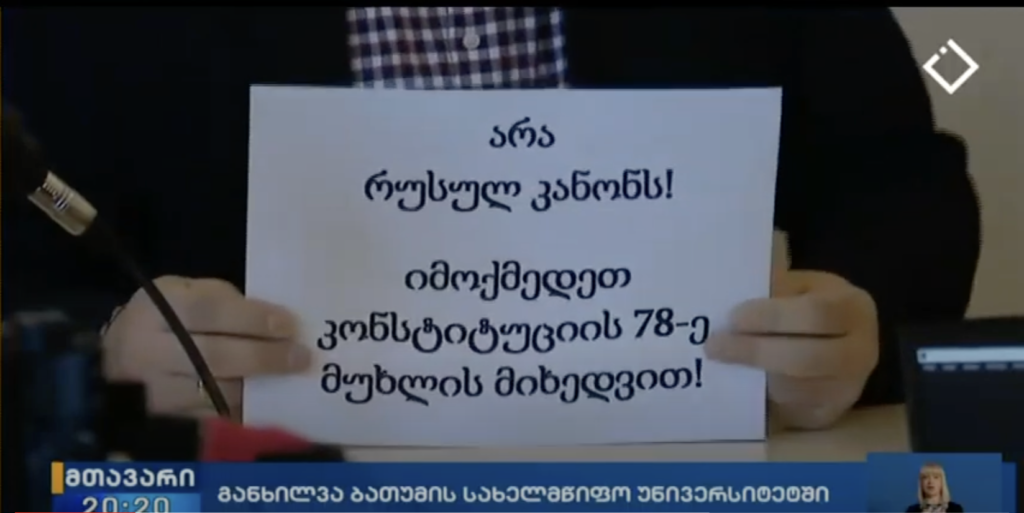
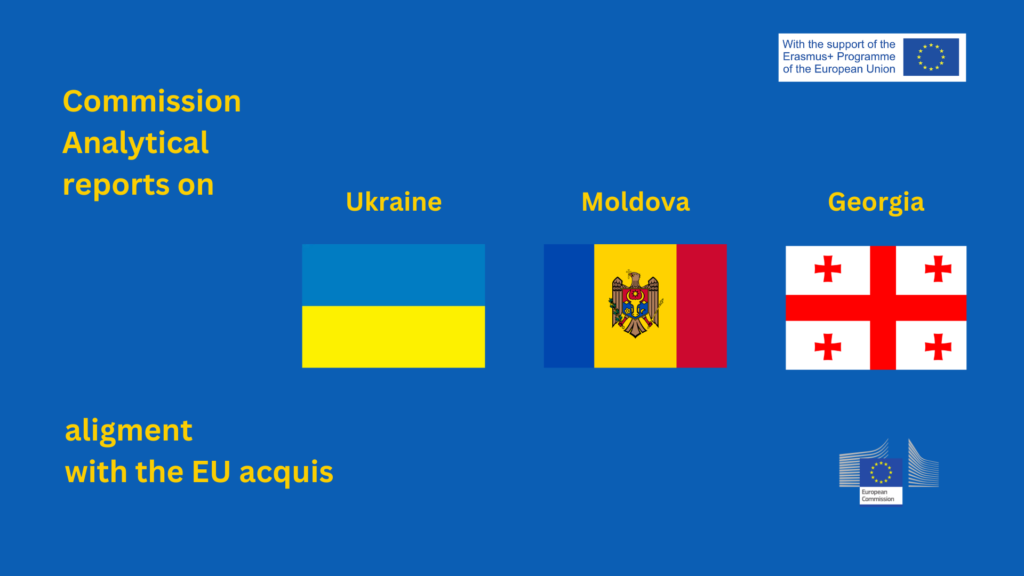
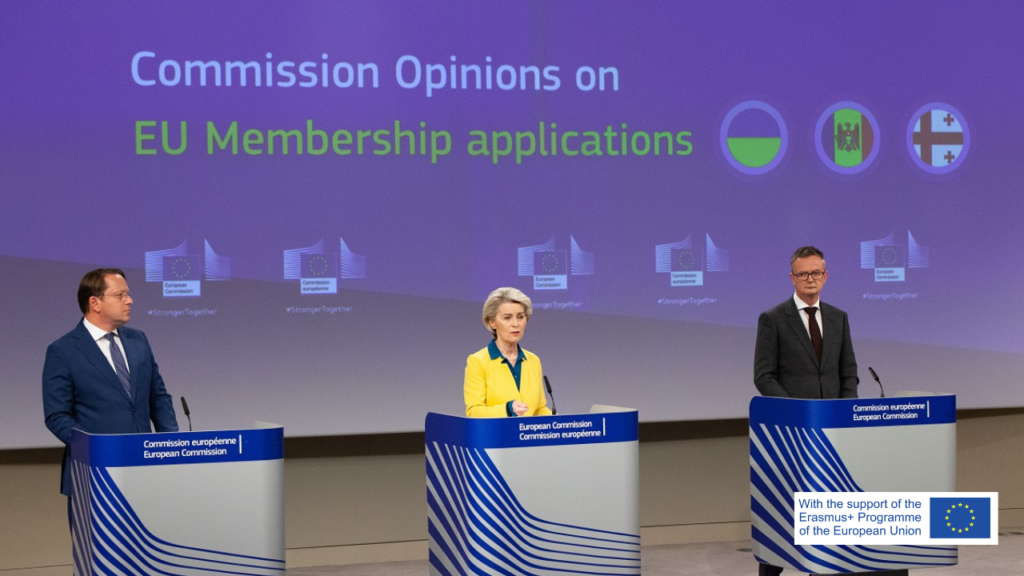
Bills on “foreign agents” and European Integration
Malkhaz Nakashidze – March 08, 2023
In the spring of 2023, a large protest was caused in Georgia by the initiation of draft laws on “foreign agents” in the Parliament of Georgia. 2 draft laws were submitted to the Parliament: the first – draft law of Georgia “On the transparency of foreign influence”, according to the first article of which, in order to ensure the transparency of foreign influence, the law regulates the registration of the subject as an agent of foreign influence and other issues related to the transparency of the activities of the agent of foreign influence. [1] Full Blog
European Commission’s Analytical Reports on Ukraine, Moldova, and Georgia’s Alignment with the EU Acquis
Malkhaz Nakashidze – February 9, 2023
On February 2, 2022, the European Commission published analytical reports on the alignment of Georgia, Moldova and Ukraine with the chapters of the EU legislation (acquis), which caused different interpretation in Georgia. The purpose of this blog is not a detailed analysis of the alignment of these countries with EU legislation, but we will briefly review what documents have been published and in what areas the EU has actually assessed the results achieved. Full Blog/ ბლოგი სრულად.
The Law on Deoligarchization: a step towards the Integration of Georgia in the European Union or a Simulation of Reforms?
Malkhaz Nakashidze – November 12, 2022
On June 23-24, 2022, the European Council adopted a decision regarding the EU membership applications of Georgia, Ukraine and Moldova. The Council recognized the European perspective of Ukraine, Moldova and Georgia and noted that the future of these countries and their citizens lies in the European Union, although it granted candidate status only to Ukraine and Moldova. Full Blog/ ბლოგი სრულად
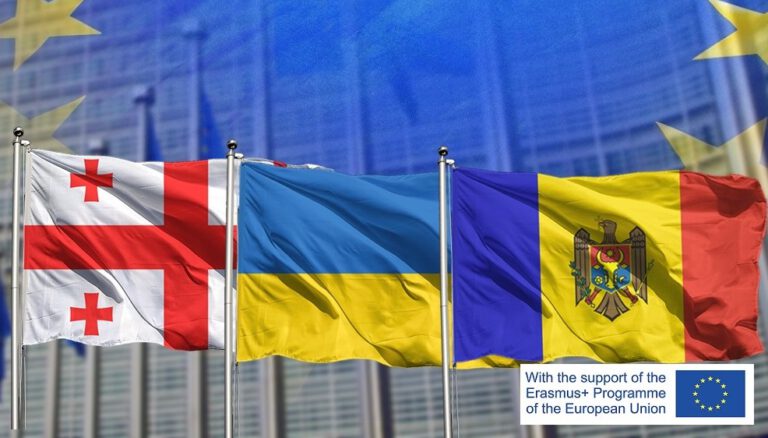
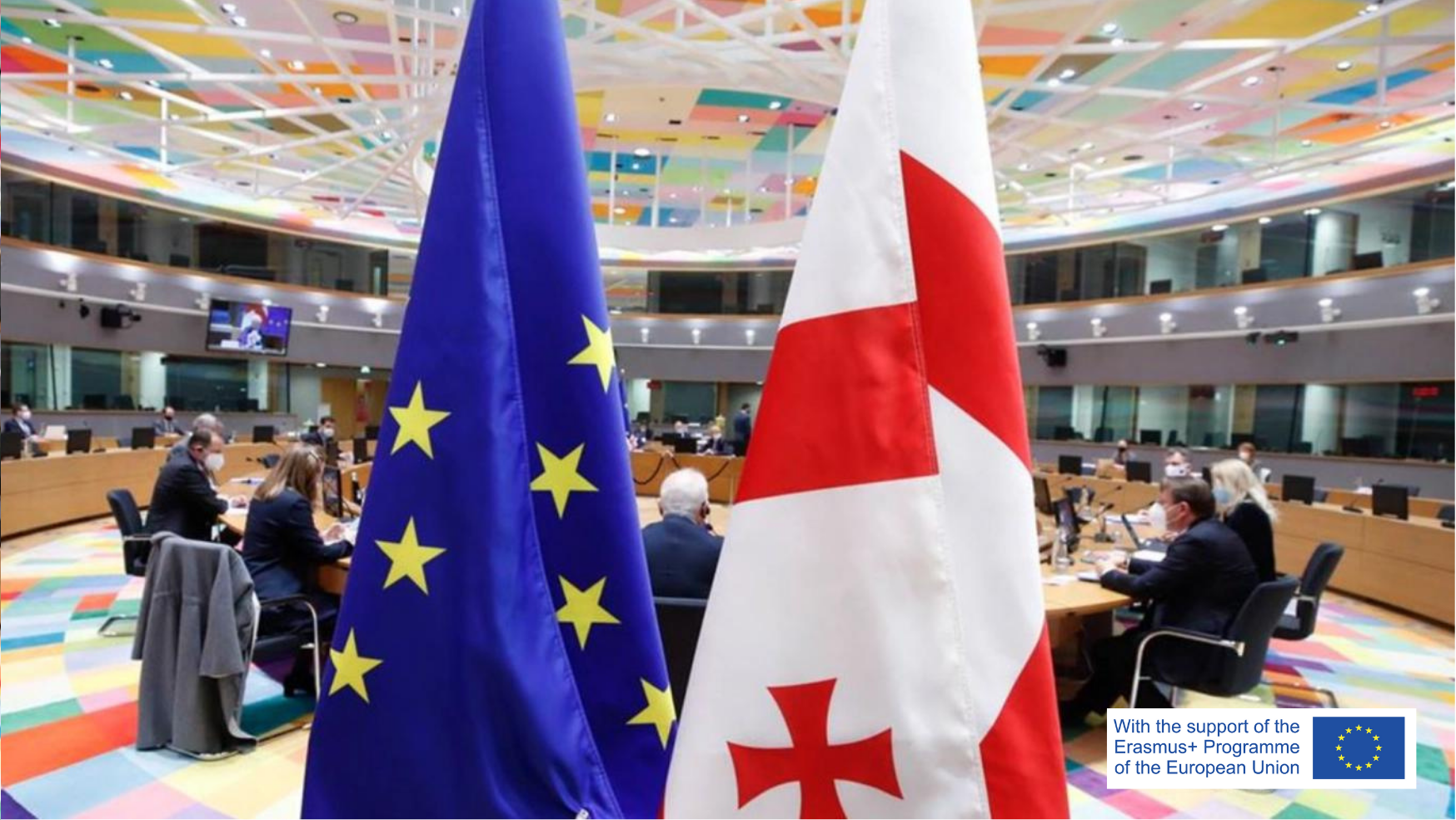
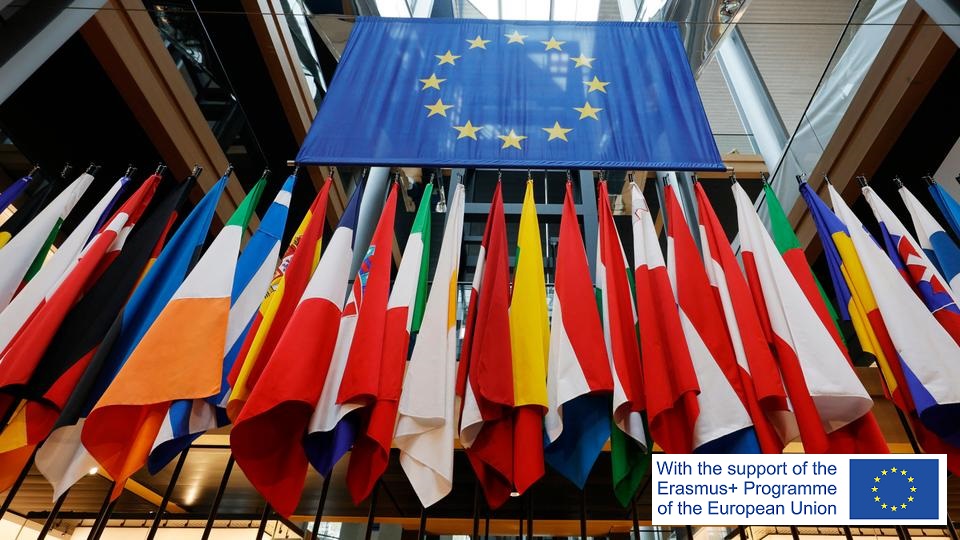
Georgia should be Granted EU Candidate Status
Malkhaz Nakashidze, June 14, 2022
On March 3, 2022, Georgia applied for EU membership. The country originally intended to apply by 2024, but Russia’s invasion of Ukraine has accelerated the process. The first part of the self-assessment questionnaire[1] on EU membership was handed over to Georgia on April 11,[2] 2022, and the second part[3] on April 29.[4]. Full Blog/ბლოგი ქართულად
ევროკავშირში გაწევრიანების პროცედურა და საქართველოს პერსპექტივები
შალვა შალიკაძე, 15 აპრილი 2022
ევროკავშირი და საკუთვრივ ევროპა დიდი გამოწვევების წინაშე დადგა, როდესაც მის კონტინენტზე რუსეთის ფედერაციამ ბოლო ათასწლეულის ყველაზე სისხლისმღვრელი ომი წამოიწყო. მიუხედევად იმისა, რომ ევროპის მოლოდინი რუსეთის ნორმალური სახელმწიფოდ ქცევა იყო, აღნიშნული ვერ განხორციელდა. იხილეთ ვრცლად
ევროკავშირი, წევრი სახელმწიფოების როლი და ევროპეიზაციის პროცესი
ტატო ჯულაყიძე, 30 ნოემბერი, 2021
ევროკავშირი არის ევროპის სახელმწიფოთა პოლიტიკურ-ეკონომიკური გაერთიანება, რომლის შექმნის სამართლებრივი საფუძველი გახლდათ ქვანახშირისა და ფოლადის ევროული გაერთიანება. 1951 წელს მოცემული ორგანიზაციისგან დაიწყო ევროპის კავშირის შექმნა, ხოლო 1957 წელს ე.წ. რომის შეთანხმებით ევროპის ეკონომიკური თანამეგობრობა შეიქმნა. იხილეთ ვრცლად
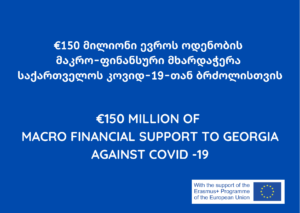
EU Macro-Financial Assistance: Has Georgia Fulfilled the Agreed Preconditions?
Malkhaz Nakashidze – September 6, 2021
On August 31, 2021, the Georgian government announced that it was rejecting microfinance assistance provided by the European Union to deal with the Covid Pandemic because the country is experiencing economic growth and wants to reduce its foreign debt. იხილეთ ვრცლად / Blog in English
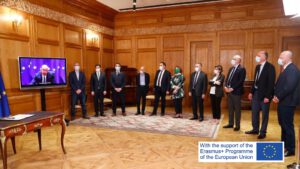
European Union Mediation of Georgia’s Political Crisis after the 2020 Parliamentary Elections
Malkhaz Nakashidze, May 17, 2021
The political crisis in Georgia, which was triggered by the opposition boycott of the October 2020 parliamentary elections, has lasted more than five months. Opposition parties have not recognized the election results and demand early elections. Read More.
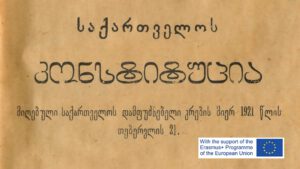
Constitution of Georgia 100 – one of the oldest constitution with the European Values
Malkhaz Nakashidze, February 21, 2021
On May 26, 1918, the Democratic Republic of Georgia declared its independence and adopted the Act of Independence of Georgia.[1] On February 21, 1921, the Constituent Assembly of Georgia adopted the Constitution of the Democratic Republic of Georgia. Read More.

Georgia – Opposition boycott, one-party parliament and Government’s readiness to apply for the EU membership in 2024
Malkhaz Nakashidze, February 08, 2021
On October 31, 2020, parliamentary elections were held in Georgia. The citizens of Georgia elected a 150-member parliament by a mixed (120 proportional/30 majoritarian) electoral system. The electoral system changed following negotiations between the ruling party and the opposition involving international diplomats, and the number of proportionally elected members of parliament has increased from 77 to 120. According to the election results, the Georgian Dream, which won the parliamentary elections for the third time, won 90 seats (61 by proportional and 30 by majoritarian system) in the 150-member legislature. Reed More.
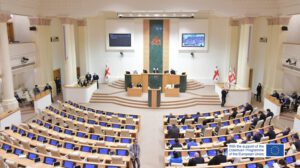
Parliamentary Resolution on Foreign Policy of Georgia and Georgia’s European Union Integration
Malkhaz Nakashidze, December 30, 2020
On December 25, 2020, the Parliament of Georgia adopted a resolution on “Foreign Policy of Georgia”. For the first time in the parliamentary history of Georgia, due to the boycott of the opposition, only the ruling party approved a document that defines the main directions of the country’s foreign policy for the next 4 years. A similar document was adopted by the previous parliaments, but according to tradition, similar resolutions were previously adopted in the Georgian parliament with broad political support.Such a document was approved by the IX term Parliament on December 29, 2016 Read More
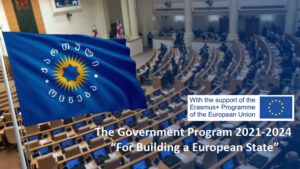
The Government Program 2021-2024 – “For Building a European State”, One-party parliament and Georgia’s European integration
Malkhaz Nakashidze, December 26, 2020
On December 24, 2020, the Parliament of Georgia expressed confidence to the Government of Georgia headed by Giorgi Gakharia. This is the same composition of the government confirmed before the elections, only one cabinet member, the minister of Justice has changed. Parliament also expressed confidence in the government’s program for 2021-2024, called “For Building a European State”. According to the program, the main task of the government in the next 4 years will be preparation of the country to apply for full membership in the EU in 2024. Read More